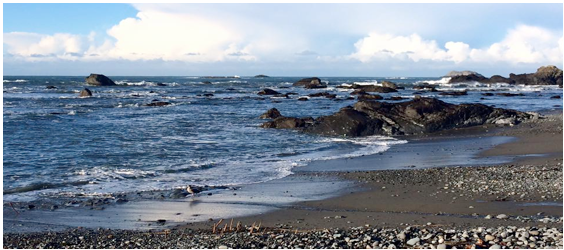CommentsENVIRONMENT POLITICS-While the media distract us with the shinier attractions of the presidential-candidate road shows, the dirty work of politics continues in the shadows. I do not mean to diminish the importance of who gets elected or even nominated, but the secret and behind-the-scenes work often makes for decisions that change public policy in favor of the rich and powerful. Those shifts impact our lives in a big way, as two recent examples in California illustrate.
Most recently, the South Coast Air Quality Management District (AQMD) upended its mission to clean our air. First the old Democratic majority opposed its staff’s recommendation for tougher rules that would govern the fossil-fuel industry. They watered them down. Then two months later, and with an even more pro-business Republican majority, the board went into closed session and fired its long-time executive officer. Praised by environmentalists, even though they often disagreed with him, he had faithfully pursued the AQMD’s goals while balancing the impact on industry. That was, apparently, not good enough for the fossil-fuel lobby.
According to the Los Angeles Times, the looser rules benefiting oil companies that the AQMD adopted came from a two-page memo written by the Western States Petroleum Association and other business groups. The new plan postpones the installation of expensive air cleaning devices and other efforts to control emissions.
A few weeks earlier the California Coastal Commission fired its long-time executive director.
The Coastal Commission signaled its intention to terminate its director when it approved a controversial ridge-line development project in Malibu proposed by The Edge, the U2 guitarist. During the whole escapade, our “environmental governor” had no comment. Since he and the legislature appoint all the board’s members, we can imagine that somebody knew what was up.
How did this happen in this environmentally conscious state? These decisions came thanks to political manipulation in the shadows.
The AQMD’s governing board is chosen by state officials and governments of the district’s four member counties. Last year Orange County leaders voted to dump their long-time representative and replace him with a Republican councilman who was outspokenly pro-business and anti-regulation. About the same time, cities in the Inland Empire decided to do the same. They dropped a clean air advocate in favor of the Republican mayor of Highland, who worries more about regulatory impacts on the economy than the air his constituents breathe. Suddenly, the board had a new majority, one that supported fossil fuels over clean air.
The Coastal Commission coup was a great day for developers and others who have long wanted fewer restrictions on building along the coast. Their lobbyists and lawyers offer perks and campaign donations to people charged with protecting our coastline. One commissioner got to meet The Edge himself, even flying to Ireland for pictures with the rock star and to attend a U2 concert. Others – who are also elected officials from far-flung parts of the state – have been accepting donations for their campaigns from sources representing business before the commission, the Los Angeles Times reported. That has smoothed the way for wealthy and powerful interests to get what they want at the expense of the people whose health these board members are sworn to protect.
In a democracy, lobbyists should have access to decision-makers to present their case. But too often money and power corrupt the process. Corruption occurs because these interests hold more wealth than most local elected officials have ever seen. It happens because a few perks – a round of golf at an elite country club, a small donation to a reelection campaign or a trip somewhere – feel good. It’s harder to say no when you’ve been schmoozed like that.
While not illegal, the kind of influence-peddling that occurs at the Coastal Commission and the AQMD takes place in the shadows, offstage where no one sees it. As Jungian psychologists teach, when the shadow side of the psyche remains unknown and unexplored, the bad behavior pokes up in unexpected places. When it happens in the political realm, it taints democracy and, in these instances, hurts our environment and people.
The shadows fall because the glare of media light focuses on the big newsmakers, like presidential candidates. Too often the small actions sneaking around the edges get ignored. By the time we learn about it, if we learn about it at all, the change has happened and the damage has been done. That’s why people, neighborhoods and advocates must constantly shine a light into the dark recesses of our public life. That’s why the struggle for justice never ends.
(Rev. Jim Conn is the founding minister of the Church in Ocean Park and served on the Santa Monica City Council and as that city's mayor. He helped found Clergy and Laity United for Economic Justice, Los Angeles, and was a founder of Santa Monica's renter's rights campaign. This piece first appeared in Capital&Main.) Prepped for CityWatch by Linda Abrams.
















